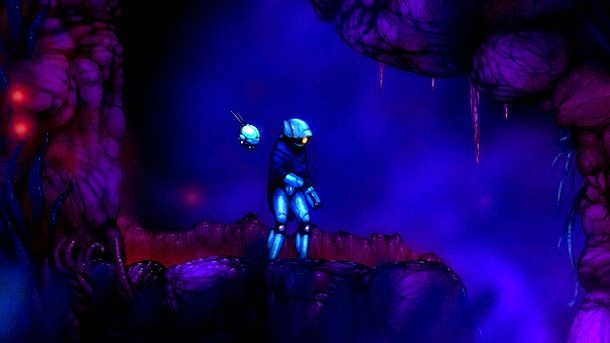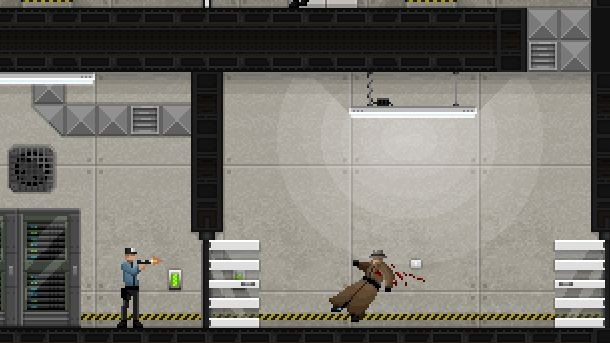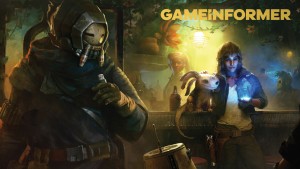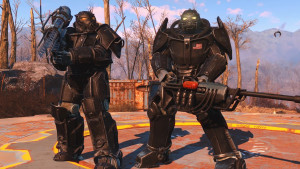Please support Game Informer. Print magazine subscriptions are less than $2 per issue
Opinion – It’s Easier Than Ever To Start Making Games, So Don't Be Afraid To Try

In the summer after third grade, I enrolled in a class called "How To Make Video Games." After a month of work, I hacked together one minute of original content. My game starred a tiger (an orange square) as he dodged waves (four blue rectangles) in a swamp (green background). With a severe lack of funding and almost no programming skill, I figured game development was out of my reach. After all, I could barely use Visual Basic (the software we used) let alone afford it. I continued to feel like game design was beyond my bounds until a few weeks ago, when Humble Bundle offered almost $2,000 worth of game-making software for a name-your-price discount.
|
Resources For Would-Be Game Programmers |
|
There are several beginner game engines available outside of the two discussed in this article. When developing traditional role-playing games with turn-based combat, for example, many turn to RPG Maker. Experts using this software produced To The Moon, Lisa, and Sometimes Always Monsters, all three of which released to positive reviews on Steam. For those who want to work in flash, Flixel may be the right choice; Canabalt, a Flixel game, popularized the endless runner genre when it launched in 2009. Furthermore, despite what you might think, indie game development in this day and age features a lower entry cost than ever before. All of the engines described in this article have free versions available for download. What this means varies from engine to engine; Stencyl only allows users to publish flash games, Game Maker Studio limits distribution to Windows, and so on. Still, anyone looking to cut his or her teeth as a video game developer should have no trouble finding an affordable platform. |
Included in the bundle was a one-year computer publishing license for Stencyl, a game engine that exchanges a certain level of power for ease of use. In Stencyl, users form "behaviors" by connecting code blocks like "set X-speed to __" and "switch animation to __." Users then assign these behaviors to objects and place them into "scenes." In eliminating coding, Stencyl removes one of game development's biggest barriers to entry. Admittedly, this program has few smash hits; its most well-known game is Ghost Song, a Metroid-style action platformer that raised $54,000 on Kickstarter and will arrive on PC via Steam in late 2015. Still, that doesn't mean that Stencyl isn't a great resource for would-be designers.
Matt White, the one-man team behind Ghost Song, calls Stencyl a good but limited tool for beginners. He cites his own game as proof of Stencyl's ability to construct and run large-scale titles. "Just be aware that it doesn't and likely won't ever have the full range of power and possibility that something like Unity has," says White. "Likewise, Unity will likely never be as approachable and intuitive to a novice as Stencyl." For more powerful software that is still somewhat user friendly, he points to Game Maker Studio.
Indies have had more success with Game Maker Studio, another engine designed to speed up game development. Notable Game Maker Studio titles include Spelunky, Hotline Miami, Gunpoint, and Hyper Light Drifter. That said, while this program uses a drag-and-drop interface similar to Stencyl, Game Maker Studio differs in that more advanced games tend to require direct coding. However, according to Gunpoint creator Tom Francis, the programming language in Game Maker Studio is very forgiving. "For any given statement there are a hundred different ways of writing it that it will accept and understand," he said in an interview with PC Gamer. Unlike stricter languages, where commands must be formatted a particular way, Game Maker Studio attempts to understand your code no matter how you write it.

The rise of the Internet, similar to the recent availability of game-making software, has affected game development. When video games grew popular in the 1980s, first-time developers either solved problems on their own or consulted nearby programmers. Nowadays, they watch tutorials from YouTube channels like Brackeys and AwfulMedia, or head to websites like CodeAcademy and Treehouse to learn new coding tricks. The Internet has also allowed like-minded people to connect. A virtual studio - a studio composed of people from all around the world, each working remotely - developed Ori and the Blind Forest. Finally, the Internet hosts many useful communities. Ludum Dare, for example, helps game designers to refine their craft via competitions.
When I finished Donkey Kong Country on the Game Boy Advance, defeating King K. Rool and rescuing the banana horde, I immediately started dreaming of the features I would add to the sequel. I went so far as to write down my ideas, the most interesting of which involved making Funky Kong a playable character with the ability to surf during underwater levels. I've wanted to make games for a long time, but I only recently realized that I could do so on my own. How crazy, I thought as I booted up Stencyl for the first time, that we live in a world where a single person can develop a game played by thousands.
If your history is similar to mine, then there's no time like the present: Go download a game engine, open up a tutorial, and give it your best shot. Getting practical experience sets you on the path to becoming a game designer, and a successful game could land you a job in the industry. If you're lucky, your game might even allow you to quit your day job and start developing full-time. Or you might just discover a great new hobby.
Games like LittleBigPlanet, Project Spark, and the upcoming Super Mario Maker appeal much more to gamers who are interested in game design. That said, if you like building houses in Minecraft or creating worlds in Disney Infinity, you may enjoy game development as well. Making a game requires passion, dedication, and a lot of hard work, but that shouldn't discourage you from trying; the indie revolution continues to provide the industry with a wealth of great games, and perhaps yours will be the next big hit.










